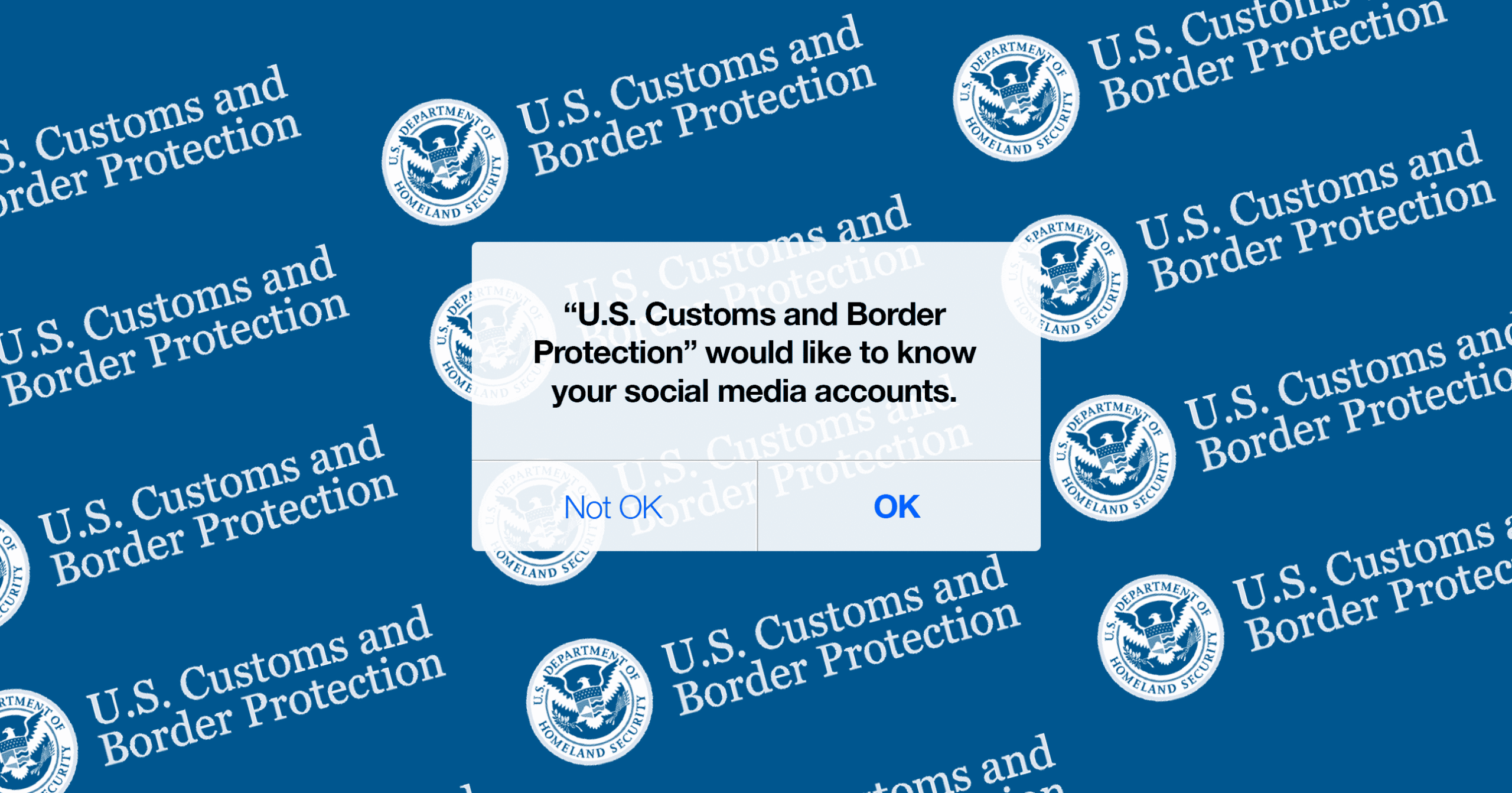Washington D.C. — Today, Access Now submitted more than 2,300 comments by internet users responding to a proposal by U.S. Customs and Border Protection (CBP) to collect travelers’ social media account information when they enter the United States and when they apply for a visa. Access Now created an online survey to make it easier for users to submit their views to the agency’s request for comments. The overwhelming majority of respondents object to the plan.
One respondent explained, “I believe that requesting this information would have a chilling effect on free and open discussion on social media — discussion that is essential to democracy.” Another worried, “I am terrified that a meta-annalists [sic] of my past years’ search history (often helping or showing students how to search for topics due on term papers — on both the computers at my college, and my personal ones as well) would yield a very skewed view of who I am or what I believe.” Several respondents called CBP’s proposal an invasion of privacy.
Access Now submitted more than 2,300 comments to the Customs and Border Protection’s regulatory docket. Nearly 1,000 respondents requested that we file their comments anonymously as part of our submission.
“Our social media accounts are often highly personal. They’re full of inside jokes, political commentary, rants and raves, and cat videos. Or otter videos. Whatever gets you through the day. It’s really easy for people to take this information out of context or to misunderstand it,” said Amie Stepanovich, U.S. Policy Manager at Access Now.
“The choice to hand over this information is technically voluntary. But the process to enter the U.S. is confusing, and it’s likely that most visitors will fill out the card completely rather than risk additional questions from intimidating, uniformed officers — the same officers who will decide which of your jokes are funny and which ones make you a security risk,” said Nathan White, Senior Legislative Manager at Access Now.
In addition to submitting internet users’ comments, Access Now joined 22 human rights and civil liberties organizations and companies in a joint letter opposing the proposal.
This inquiry goes far beyond the customary visa-waiver application questions regarding a person’s name, address, criminal background, health status, and duration of stay. A person’s online identifiers are gateways into an enormous amount of their online expression and associations, which can reflect highly sensitive information about that person’s opinions, beliefs, identity, and community. Further, analysis of all visa-waiver applicants’ social media “activity and connections” would be a difficult and prohibitively expensive intelligence activity—costs that are not reflected in the proposal.
